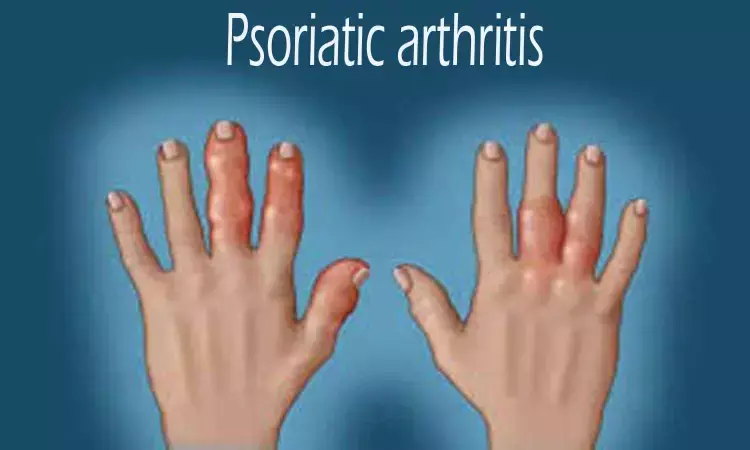- Home
- Medical news & Guidelines
- Anesthesiology
- Cardiology and CTVS
- Critical Care
- Dentistry
- Dermatology
- Diabetes and Endocrinology
- ENT
- Gastroenterology
- Medicine
- Nephrology
- Neurology
- Obstretics-Gynaecology
- Oncology
- Ophthalmology
- Orthopaedics
- Pediatrics-Neonatology
- Psychiatry
- Pulmonology
- Radiology
- Surgery
- Urology
- Laboratory Medicine
- Diet
- Nursing
- Paramedical
- Physiotherapy
- Health news
- Fact Check
- Bone Health Fact Check
- Brain Health Fact Check
- Cancer Related Fact Check
- Child Care Fact Check
- Dental and oral health fact check
- Diabetes and metabolic health fact check
- Diet and Nutrition Fact Check
- Eye and ENT Care Fact Check
- Fitness fact check
- Gut health fact check
- Heart health fact check
- Kidney health fact check
- Medical education fact check
- Men's health fact check
- Respiratory fact check
- Skin and hair care fact check
- Vaccine and Immunization fact check
- Women's health fact check
- AYUSH
- State News
- Andaman and Nicobar Islands
- Andhra Pradesh
- Arunachal Pradesh
- Assam
- Bihar
- Chandigarh
- Chattisgarh
- Dadra and Nagar Haveli
- Daman and Diu
- Delhi
- Goa
- Gujarat
- Haryana
- Himachal Pradesh
- Jammu & Kashmir
- Jharkhand
- Karnataka
- Kerala
- Ladakh
- Lakshadweep
- Madhya Pradesh
- Maharashtra
- Manipur
- Meghalaya
- Mizoram
- Nagaland
- Odisha
- Puducherry
- Punjab
- Rajasthan
- Sikkim
- Tamil Nadu
- Telangana
- Tripura
- Uttar Pradesh
- Uttrakhand
- West Bengal
- Medical Education
- Industry
Methotrexate escalation or add on adalimumab- Trial guides selecting initial PsA treatment

UK: Results from a phase 4, an open-label study supports the addition of tumor necrosis factor (TNF) inhibitor adalimumab over escalating methotrexate in psoriatic arthritis (PsA) patients who do not reach minimum disease activity (MDA) after an initial methotrexate course. The study was published online in The Lancet Rheumatology.
Explaining the results, Laura C Coates, University of Oxford, Oxford, UK, and colleagues wrote, "for PsA patients whose condition doesn't respond adequately to methotrexate (MTX), the addition of adalimumab increased the likelihood of achieving MDA compared with the escalation of MTX dose."
Many psoriatic arthritis patients do not reach MDA on methotrexate alone. In CONTROL -- a phase 4, randomized, two-part, open-label study conducted in 14 countries and 46 sites, the researchers aimed to compare attainment of MDA following the introduction of adalimumab with methotrexate escalation in patients with psoriatic arthritis who do not reach MDA after an initial methotrexate course (≤15 mg every week).
Patients with confirmed active psoriatic arthritis, naive to biologic disease-modifying antirheumatic drugs, with an inadequate response to 15 mg or less of methotrexate were recruited. In part 1, patients were randomly assigned in 1:1 ratio to receive either methotrexate 15 mg (oral or subcutaneous) every week with the addition of adalimumab 40 mg (subcutaneously) every other week (adalimumab plus methotrexate group) or methotrexate (oral or subcutaneous) escalation up to 25 mg every week (escalated methotrexate group). There was no masking in the open-label study meaning that participants, people giving the interventions, those assessing outcomes, and those analyzing the data were aware of group assignment. The primary endpoint was the proportion of patients who reached MDA at 16 weeks.
Following 16 weeks (part 2), patients who reached MDA (responders) had their current therapy maintained or modified, whereas patients who did not reach MDA (non-responders) had their therapy escalated until 32 weeks. In part 2, the primary endpoint was the proportion of patients who reached MDA at 32 weeks, analyzed in all patients who received one or more doses of the study drug.
245 of 287 patients initially assessed were enrolled in the study between Aug 5, 2016, and March 19, 2020 (50% men and 50% women; 92% of patients were White). 123 patients were randomly assigned to receive adalimumab plus methotrexate and 122 patients to receive escalated methotrexate. All 245 patients were included in the primary analysis, and 227 completed part 1 and entered part 2.
Based on the study, the researchers reported the following findings:
· A significantly higher proportion of patients reached MDA at 16 weeks in the adalimumab plus methotrexate group (51 [41%] patients) compared with the escalated methotrexate group (16 [13%] patients).
· Efficacy was generally maintained through 32 weeks for patients who reached MDA at 16 weeks, with 41 (80%) of 51 adalimumab responders and ten (67%) of 15 methotrexate responders maintaining MDA at 32 weeks. Of adalimumab non-responders, 17 (30%) of 57 patients reached MDA at 32 weeks after adalimumab escalation to every week dosing.
· Among methotrexate non-responders, 50 (55%) of 91 reached MDA after adalimumab introduction.
· In part 1, two patients in the adalimumab plus methotrexate group reported serious adverse events; and in part 2, one adalimumab responder, three adalimumab non-responders, and three methotrexate non-responders reported serious adverse events.
· No new safety signals were identified.
"Findings from a novel treatment-strategy trial support the addition of adalimumab over escalating methotrexate in psoriatic arthritis patients not reaching MDA after an initial methotrexate course," wrote the authors. "Safety results were consistent with the therapies' known safety profiles."
Reference:
The study titled, "Comparison between adalimumab introduction and methotrexate dose escalation in patients with inadequately controlled psoriatic arthritis (CONTROL): a randomised, open-label, two-part, phase 4 study," was published in The Lancet Rheumatology.
DOI: https://doi.org/10.1016/S2665-9913(22)00008-X
KEYWORDS: psoriatic arthritis, adalimumab, methotrexate, Lancet, minimal disease activity, dose-escalation, Laura C Coates, Control trial, antirheumatic drugs
Dr Kamal Kant Kohli-MBBS, DTCD- a chest specialist with more than 30 years of practice and a flair for writing clinical articles, Dr Kamal Kant Kohli joined Medical Dialogues as a Chief Editor of Medical News. Besides writing articles, as an editor, he proofreads and verifies all the medical content published on Medical Dialogues including those coming from journals, studies,medical conferences,guidelines etc. Email: drkohli@medicaldialogues.in. Contact no. 011-43720751


